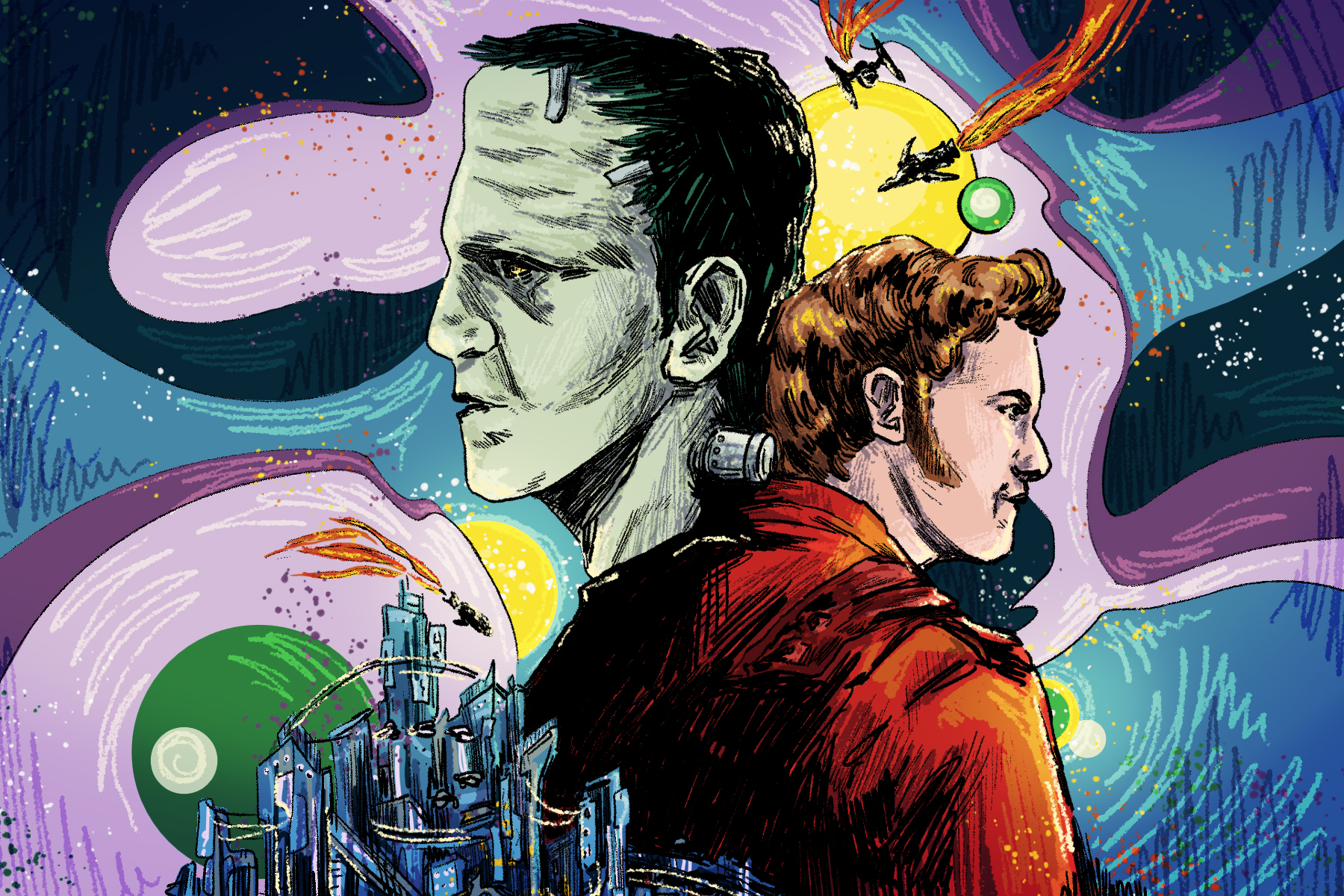A long time ago, in a galaxy far, far away, the beginnings of sci-fi were planted, unnoticed. Sci-fi, or science fiction, is a genre defined by narratives that explore how humanity reacts to scientific and societal advancements. Televisions, space rockets, men on the moon — all of these realities were first imagined in the minds of sci-fi authors. The origin of the genre is muddy at best; after all, while science and innovation have always existed, sci-fi of the past looked very different than its modern descendant. Some posit “Frankenstein” by Mary Shelley, written in 1818, to be one of the first sci-fi works. But what if audiences were to widen their perception of what science fiction is? Where does it begin? Why have thousands of years of artists decided to tell their stories this way?
In the earliest works of science fiction, the lines blur between fantasy and sci-fi. This is not a new phenomenon: franchises such as “Star Wars,” “Star Trek,” and even the “Guardians of the Galaxy” can be called “science fantasy,” a combination of the two genres. Writers from before the time of modern technology often combined science and technology with myth and legend, as can be seen in one of the first sci-fi stories, written in second century A.D. Syria.
“A True History” by Syrian author Lucian of Samosata is regarded as one of the earliest science fiction narratives. The exact beginning of the genre may never be identified. Some stories went up in flame thousands of years ago, some were never translated, and some explore science fiction topics but don’t quite seem to classify as sci-fi. “A True History” highlights ideas that authors still dabble in today. It follows trips to the moon, the sun and even a utopian society, and includes a literal “space-ship”— a flying sailboat. Roy Arthur Swanson, Professor of Comparative Literature and Classics at the University of Wisconsin, wrote, “Lucian of Samosata… appears today as an exemplar of the science fiction artist.” The work mixes Greek myth, including characters such as Hercules and Dionysus, with science fiction.
Science fiction has been called “the history of our growing understanding of the universe and the position of our species in that universe.” But from the first works in the genre to the most popular, there is a consistent repertoire of familiar topics and themes. The Arabian stories “One Thousand and One Nights,” written in the 8th-10th centuries, feature galactic travel and a robotic horse controlled by keys.
During the scientific discoveries of the 16th century Enlightenment, the world of speculative science fiction exploded, transforming into something that more closely resembles what is popular today. The subsequent 17th and 18th centuries’ Age of Reason produced even more science fiction works. Novels such as “The Man in the Moone” (1638) maintain a fascination with space travel that was seen in earlier works and remains prevalent in the modern day.
The 19th century saw the sci-fi genre truly taking shape into a refined form. Shelley’s momentous work “Frankenstein” is the very definition of science fiction and speaks not just to the fantastical things that can be done with it, but also relays the horrors that scientific advancements can bring. This subject is addressed more and more often as modern technology takes center stage in humanity’s fears about the future. “Frankenstein,” at its core, is a story of an AI that turns on its creator to chase its own desires. This narrative is seen in later works such as “2001: A Space Odyssey” and “Avengers: Age of Ultron.” With the recent spotlight on AI due to the rise of ChatGPT, Shelley’s “Frankenstein” has become all the more relevant.
There is a seemingly endless list of works in the science fiction genre that have influenced the narratives that we see today. Ray Bradbury’s “Fahrenheit 451” and George Orwell’s “Nineteen Eighty-Four,” for example, are read in many classrooms across the United States. Post-World War II, sci-fi became a less fantastical and more respected genre, as many had their lives directly affected by dangerous technological advancement for the first time. This paved the way for “The Big Three” sci-fi writers: Isaac Asimov, Robert Heinlein and Arthur C. Clarke. These authors defined hard science fiction, which is characterized by adherence to scientific accuracy even in narratives about galactic kingdoms.
The history of sci-fi circles into modern pop culture with the creation of some of the biggest franchises of all time, “Star Trek” and “Star Wars.” These franchises were monumental for the forward movement of the genre and contain echoes of thousands of years of sci-fi history. From the spaceship in “A True History” to the robot in “One Thousand and One Nights,” these franchises honored the long history of the genre and primed audiences for sci-fi to grow into one of the most popular genres of media.
In May of 2023, Marvel released “Guardians of the Galaxy Vol. 3.” The movie highlighted alien societies, space travel, creation turning on its creator, artificial intelligence and many other aspects of sci-fi that have been crafted and honored throughout the years. It has gained attention for its excellent storytelling and a “human touch” that the sci-fi genre is known for employing. At the end of the day, science fiction is not only about science: it is about humanity’s reaction to science and the horrors that can be unleashed when we reach beyond our natural ability. One of the first lines of “A True History” explains that everything within it is a lie. But, as with most sci-fi, there is a truthful message hidden within: even with fantastical scientific advancements, people are always just people.
















